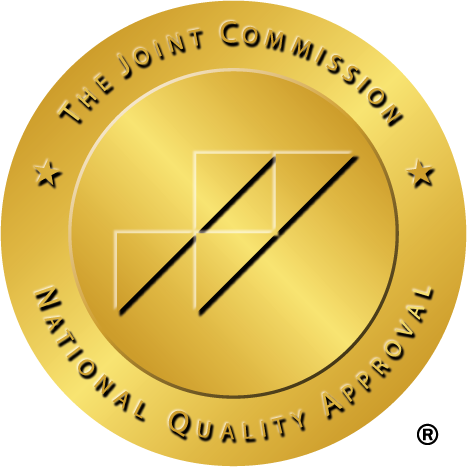Table of Contents
Many patients wonder “How long does Adderall® stay in your system?” But before we jump into that, it’s important to have a better understanding of how the drug works and how it can effect your body.
Amphetamine/dextroamphetamine salts (Adderall®) is a stimulant drug [1] approved by the FDA to treat the symptoms of attention deficit disorder (ADD) and attention deficit hyperactivity disorder (ADHD). This drug works by stimulating the central nervous system and increasing levels of dopamine or norepinephrine in the brain, resulting in increased focus and reduced impulsivity.
Adderall® is also sometimes prescribed off label to treat depression and anxiety.
Although Adderall® has the potential to alleviate the symptoms of diagnosed mental health conditions, stimulants present high potential for abuse, especially among college students and high-level executives looking to increase focus, performance, and productivity.
Adderall® abuse often leads to substance use disorder and requires clinical assistance to detox and overcome the addiction.
Adderall® is metabolized by the body relatively quickly compared to other drugs, but how long it stays in your system depends on a myriad of factors.
What is the Half-Life of Adderall®?
The half-life of Adderall® is approximately ten hours, meaning that every ten hours, half of the substance is eliminated from the body.
For example, if you took Adderall® at 6am, the drug would be halfway out of your system by 4pm the same day.
How Long Does Adderall® Stay In Your System?
Although the effects of Adderall® wear off between approximately 20 and 24 hours, the drug is detectable in the body for much longer. There are several factors that affect how long Adderall® can be detected in the body, including frequency of use, dosage, age, and body composition.
Depending on the type of drug test, Adderall® is detectable for different durations. A urine test may not detect Adderall® after 7 days, but a hair follicle test can detect Adderall® up to three months after your last use.
Below are some common drug tests for Adderall® and the detection window for each:
| Drug Test | Adderall® Detection Times |
| Urine Test | 3-7 days |
| Blood Test | 1-2 days |
| Saliva Test | 2-3 days |
| Hair Test | Up to 90 days |
What are the Side Effects of Too Much Adderall® in Your System?
If you’re wondering how long does Adderall® stay in your system, it really has a lot to do with how much you take.Taking more Adderall® than prescribed is Adderall® misuse and can lead to overdose.
Signs of an Adderall® overdose [2] include:
- Rapid breathing
- Dizziness
- Increased heart rate
- Shaking
- Fever
- Nausea, vomiting, and diarrhea
- Confusion
- Restlessness
- Blurred vision
- Hyperactivity
- Aggression
- Panic
All types of Adderall®, including Adderall® XR (extended release) and Adderall® IR (immediate release), when taken in excess, can cause irreversible damage to the body, specifically the liver and kidney function.
If you or a loved one are experiencing symptoms of an Adderall® overdose, call 911.
Does Adderall® Cause Long Term Effects?
How long does Adderall® stay in your system and how can long term Adderall® use have lasting, damaging effects on the body.
Adderall® is a stimulant and can increase blood pressure and heart rate, leading to both heart attack and stroke. Taking Adderall® long term [3] (especially in the case of higher doses and Adderall® abuse), can cause lasting damage to the liver, kidneys, and gastrointestinal tract.
If your doctor has prescribed you Adderall®, they have decided that the benefits outweigh the risks of taking the drug. However, you should never take Adderall® without a prescription, as stimulant drugs–and any other drugs–can exacerbate symptoms of pre-existing conditions.
How Can You Get Adderall® Out of Your System Quickly?
The effects of Adderall® will wear off within 24 hours, but the only way to get Adderall® out of your system is to stop taking the drug.
It is important, however, that you do not attempt to detox from Adderall® on your own. Stopping any type of stimulant medication without the supervision of a medical professional can lead to negative consequences, including the inability to manage cravings and withdrawal symptoms and return to using the drug.
If you or a loved one are suffering from Adderall® addiction, contact an addiction treatment center to discuss treatment options.
How Can I Get Started With New Waters Recovery?
If you or a loved one are suffering from an addiction to Adderall®, there is help. At New Waters Recovery, we specialize in Adderall® addiction recovery treatment for high-level professionals and executives.
We understand the unique challenges experienced by executives and cater our services around your professional responsibilities. From technical capabilities and customized, chef-prepared meals, we provide unparalleled, upscale treatment that allows our clients to complete treatment both comfortably and while attending to your obligations outside of recovery.
You can succeed without Adderall®, and we’re here to help you regain control of your life. Contact our admissions department today and let us know how we can help you.
Frequently Asked Questions About Adderall®
Answers to some of the most common questions about Adderall®, Adderall® addiction, and Adderall® addiction treatment:
Sources
- Handelman, K., & Sumiya, F. National Library of Medicine. (2022, July 22). Tolerance to stimulant medication for attention deficit hyperactivity disorder: Literature review and case report. Retrieved from https://www.ncbi.nlm.nih.gov/pmc/articles/PMC9332474 on 2023, January 17
- Fitzgerald, K. PhD, Bronstein, A. MD. (2013, February). Adderall® (amphetamine-dextroamphetamine) toxicity. Retrieved from https://www.sciencedirect.com/science/article/abs/pii/S193897361300024X on 2023, January 17
- Millichap, J.G. Pediatric Neurology Briefs. (2005). Long-term effects of adderall xr in adhd. Retrieved from https://www.pediatricneurologybriefs.com/articles/10.15844/pedneurbriefs-19-6-10/ on 2023, January 17
New Waters Recovery Editorial GUIDELINES
At New Waters Recovery, we take your health and wellness seriously. We have a thorough process in place to ensure the integrity of information that is displayed on our website. All content published to our site undergoes a rigorous medical review by a doctorate level clinician to ensure medical accuracy. Read More About Our Process






